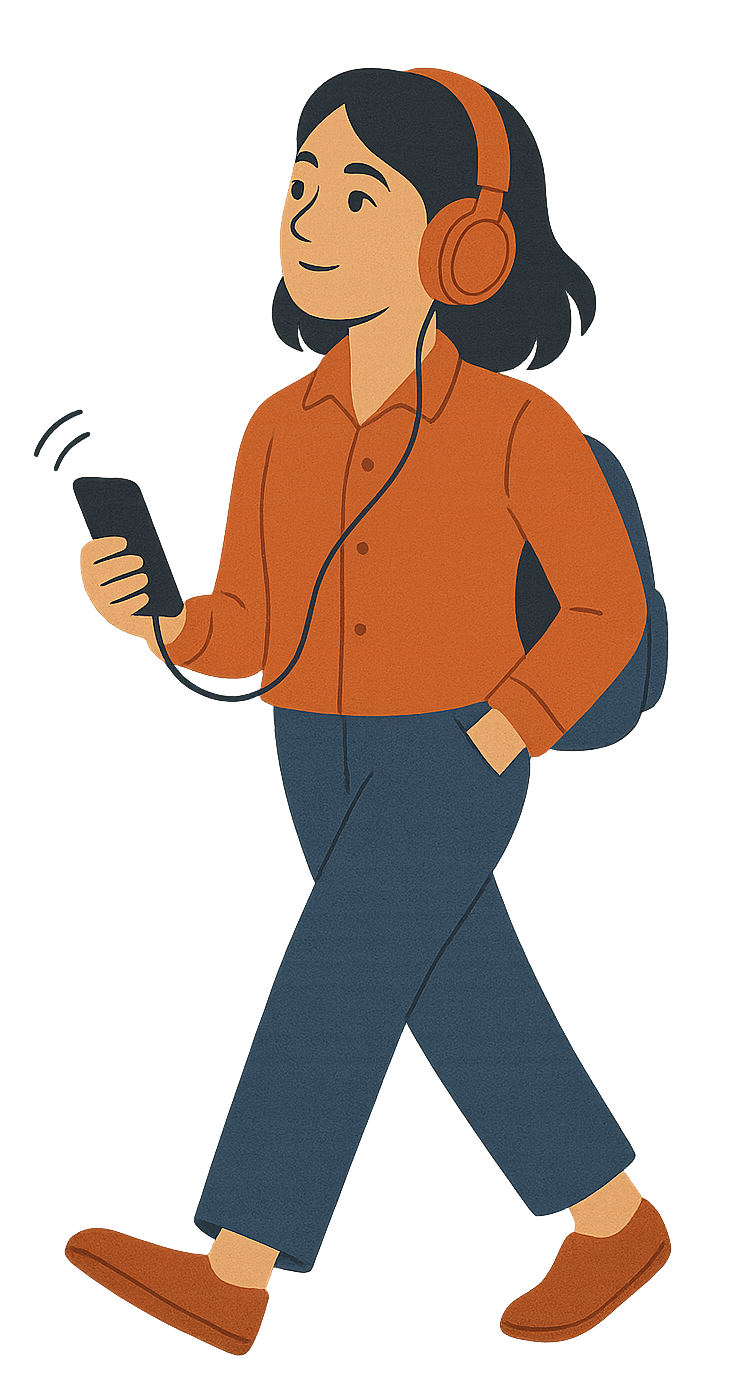How I use Audio Flash to learn a language
I've been using it to learn French and Spanish, and it's been a hoot.

#language #learning #audio-flashcards
Audio Flash is a mobile app that allows users to study any topic with audio-based flashcards. Unlike traditional text-based flashcards, Audio Flash focuses on listening and speaking with autoplay functionality that allows you to study without excessive screen time. It's perfect for developing real conversational skills in a new language.
My Language Learning Journey
Over the past few years, I've hit the road as a modem cowboy. I started the lifestyle with a zany surf trip from the southern tip of Chile all along the Pacific coast back up to California, then headed back to the east coast of Mexico for some dive expeditions from Cozumel down to Honduras. Most recently I've ventured along the western coast of France down into the Northern coast of Spain, then hopped over to Morocco. The adventures have been plenty, the people inspiring, and the language struggles real.
During these travels, I've discovered that speaking in casual conversation is the most useful aspect of language learning. Not only is it critical for navigating life on the day to day, but it allows the most realistic and rich immersion into any new culture. Learning to speak the language shows others you really care, and the excitement that shows in someone's eyes when you start a conversation in their native language is worth the work.

Hiking to Dickson Lodge in Patagonia. Perfect time to practice Spanish with Audio Flash!
My travel experiences inspired me to build Audio Flash - an app that prioritizes listening and speaking over traditional text-based learning methods, allowing you to study hands-free while on the go.
How I Use Audio Flash for Language Learning
My daily study routine with Audio Flash follows a simple but effective pattern. First, I either import an existing French deck from Anki or create a new custom deck using Anthropic's Claude AI to generate content. When creating new cards, I focus on two key elements: new vocabulary and example usage that challenges me to use this vocabulary in real-world contexts.
The approach is similar to the Pimsleur method - instead of just memorizing isolated words, I practice using new vocabulary in various sentence structures and scenarios. This helps me understand not just what words mean, but how to use them naturally in conversation.
Each day, I follow a consistent routine in the app: I start with "Learn new cards" to introduce fresh vocabulary, then move to "Practice all due cards" to review previously learned material. The spaced repetition system ensures that new words stick in my long-term memory while keeping my daily practice sessions manageable and effective.
One of the best features is that Audio Flash works completely offline once you've downloaded your flashcard decks. All your cards, text-to-speech audio, and spaced repetition scheduling are stored locally on your device, so you can study anywhere. I'm a big-time backpacker and sailor, so most often I'll practice while hiking between camps or crossing between islands.
